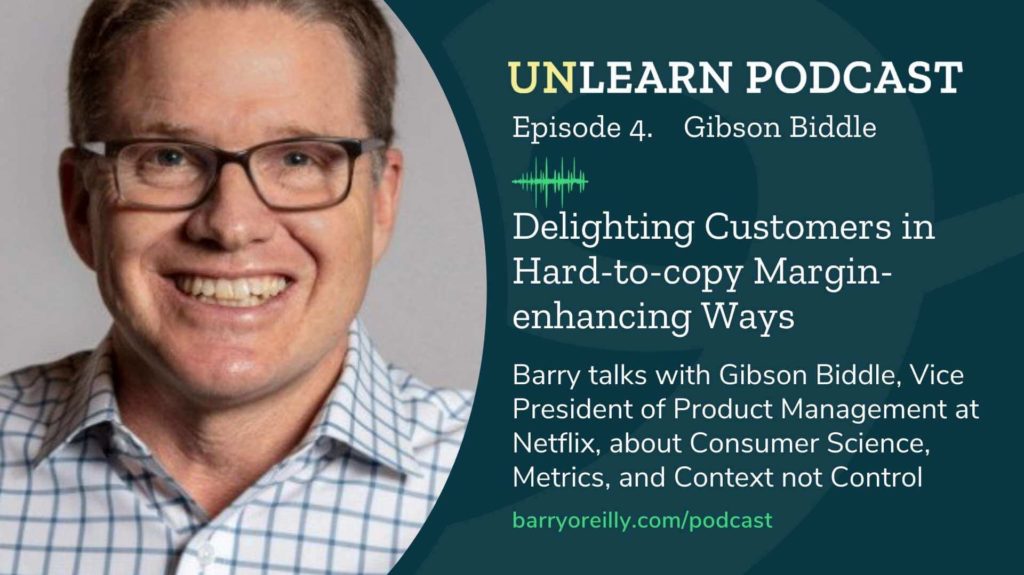How do you figure out what works? On this episode, we have Gibson Biddle, a speaker, advisor, and teacher who is the former Vice President of Product Management at Netflix. He’s been involved with many startup companies to help them develop products, and today we’re talking about consumer science, metrics, and experimenting our way through work and life. Listen to Delighting Customers in Hard-to-copy Margin-enhancing Ways with Gibson Biddle.
Consumer Science
“I don’t care what they said, I don’t care what it looks like, I just want to see the data.” These were a former boss’s words to Gibson and a moment of great insight for him. Consumer science is about forming hypotheses quickly, putting them into A/B tests to see which ones move the metrics, and then create a system where you can test and discover what consumers love.
And though he worked for people who said they didn’t care what a focus group said (“launch it, get it out there, and see if it moves the metrics or not”), speaking to people was still important for Gibson because it gave him great ideas. It kept the voice of the customer top of mind when he generated new hypotheses.

Top Line Metrics and Proxy Metrics
Being able to measure whether you’re successful are critical. At Netflix, Gibson’s top-line metric was to improve retention. But the key thing is to also develop proxy metrics to help you achieve your top-line metric. One of their proxy metrics was the percentage of members who watched at least 15 minutes in a month. These proxy metrics work on a local level to impact your top line metric and define success. They also help build in a system of accountability — that ties in with freedom and responsibility — for people on the front lines.
Context Not Control
Inventing the future is really hard, and to build and teams that can figure things out for themselves, the idea is context, not control. Success relies on testing and the willingness to experiment with ideas to discover what works. Strategy meetings would discuss hypotheses to hit proxy metrics, and while there is a certain discipline to all that, it wasn’t about telling people what to do.
Career Hacks
One of the most effective tactics Gibson has for learning new things is to teach. For years, he would teach a topic of the week on Friday mornings, and having to codify his thoughts and share them with others was an amazing way for him to learn.
Another nugget: building a career is a lot like building a product. You have theories, hypotheses, and metrics, and you can test and learn and experiment your way to discover what works.
Gibson also has a personal Board of Directors: a collection of peers, people he’s worked with, and mentors, who care about him and give him insight about the things he’s trying to explore — while being candid and giving him the hard truth when he needs it.
“Treat me like I’m stupid” is one of Gibson’s catchphrases. It’s simply daring to acknowledge that you’re at the beginning of your learning curve and that there are no stupid questions.
Start Your Unlearning Journey
Unlearn: Let Go of Past Success to Achieve Extraordinary Results by Barry O’Reilly
Get notified of new podcasts and be the first to get access to Barry’s latest case studies, tools and techniques by joining his award-winning newsletter















